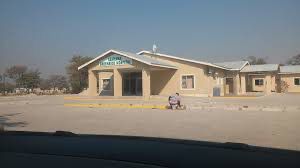A THOUSAND rare black-mane lions – an Ethiopian national symbol – and some 300 elephants are in danger after a swathe of forest that was part of their sanctuary was cut down, a wildlife expert said on Thursday.
The land was cleared from a designated conservation area at Midiga Tola, adjacent to the Babile Elephant Sanctuary located 557 km east of Addis Ababa, Ethiopian Wildlife Association President Yirmed Demeke said. Flora EcoPower Holding AG, a German biodiesel producer, cleared the forest after it was granted 10 000 hectares of land, Yirmed said.”The company has continued to clear the forested land without any concern for the wild animals threatened by the destruction of an internationally recognised conservation area,” Yirmed said.Munich-based Flora EcoPower’s chief operations officer for Ethiopia said the company met wildlife experts and government officials over the past few days to solve the problem.”We are not touching one area where there are elephants,” said Alon Hovev, adding that the area they were working in was 30 km from the elephants’ habitat.The problem, he said, arose from a lack of communication between the company and conservation groups, which had been solved by the meetings.”No one can tell us we are not taking care of animals.Anything they will tell us to do, we will do and we will contribute money,” he said.Wildlife experts who visited the forest lodged protests with the regional and federal governments, saying the company had not conducted the legally required environmental impact assessment before cutting the forest down.Tadesse Hailu, head of the Ministry of Agriculture’s Wildlife Protection Department, said local authorities must make sure that investment does not harm conservation areas, wildlife or the environment.The 7 000 square-kilometre sanctuary is the only one of its kind in Ethiopia, and is home to about 300 elephants, 1 000 black-mane lions and 250 bird and plant species endemic to the Horn of Africa nation.The black-mane lions are revered as a national symbol in Ethiopia, where they are on the national currency and are often depicted in statues.Scores of the black-maned lions are kept in a zoo in the capital Addis Ababa.Wildlife experts estimate that only about 1 000 remain in the wild.Nampa-Reuters (Additional reporting by Bryson Hull in Nairobi)Flora EcoPower Holding AG, a German biodiesel producer, cleared the forest after it was granted 10 000 hectares of land, Yirmed said.”The company has continued to clear the forested land without any concern for the wild animals threatened by the destruction of an internationally recognised conservation area,” Yirmed said.Munich-based Flora EcoPower’s chief operations officer for Ethiopia said the company met wildlife experts and government officials over the past few days to solve the problem.”We are not touching one area where there are elephants,” said Alon Hovev, adding that the area they were working in was 30 km from the elephants’ habitat.The problem, he said, arose from a lack of communication between the company and conservation groups, which had been solved by the meetings.”No one can tell us we are not taking care of animals.Anything they will tell us to do, we will do and we will contribute money,” he said.Wildlife experts who visited the forest lodged protests with the regional and federal governments, saying the company had not conducted the legally required environmental impact assessment before cutting the forest down.Tadesse Hailu, head of the Ministry of Agriculture’s Wildlife Protection Department, said local authorities must make sure that investment does not harm conservation areas, wildlife or the environment.The 7 000 square-kilometre sanctuary is the only one of its kind in Ethiopia, and is home to about 300 elephants, 1 000 black-mane lions and 250 bird and plant species endemic to the Horn of Africa nation.The black-mane lions are revered as a national symbol in Ethiopia, where they are on the national currency and are often depicted in statues.Scores of the black-maned lions are kept in a zoo in the capital Addis Ababa.Wildlife experts estimate that only about 1 000 remain in the wild.Nampa-Reuters (Additional reporting by Bryson Hull in Nairobi)
Stay informed with The Namibian – your source for credible journalism. Get in-depth reporting and opinions for
only N$85 a month. Invest in journalism, invest in democracy –
Subscribe Now!






